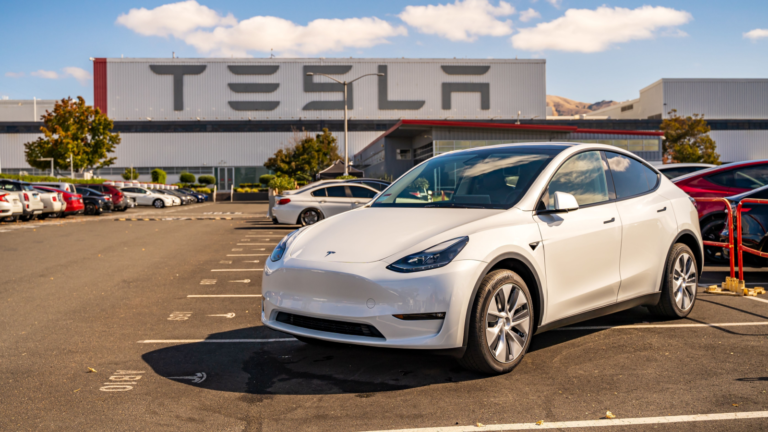Business
TSLA Stock Price
Published
8 months agoon
By
Admin
Tesla, Inc. (TSLA) is one of the most closely watched and talked about stocks in the market. Its stock price is a barometer for the electric vehicle (EV) industry and the broader tech sector, given Tesla’s pivotal role in revolutionizing transportation with its innovative electric cars, solar energy products, and battery storage solutions. Analyzing TSLA’s stock price involves understanding various factors including its financial performance, market trends, competitive landscape, and broader economic conditions.
Historical Performance
Tesla went public on June 29, 2010, at an initial public offering (IPO) price of $17 per share. Since then, TSLA’s stock price has experienced significant volatility and tremendous growth. Early investors who held onto the stock have seen substantial returns, as Tesla’s stock has split multiple times and surged in value, particularly in the last decade. A key milestone was achieved in August 2020 when Tesla executed a 5-for-1 stock split, making its shares more accessible to retail investors.
Key Growth Phases
- Early Growth (2010-2014): Initially, Tesla was not widely recognized, and its stock price hovered around $20-$30. The launch of the Model S in 2012 marked the beginning of a steady rise in stock price, reflecting increasing confidence in Tesla’s ability to deliver electric vehicles.
- Breakthrough and Expansion (2015-2019): With the introduction of the Model X and Model 3, Tesla’s production capabilities expanded. The stock price began to rise more consistently, breaking the $300 mark in 2017. Tesla’s ability to ramp up production and deliver more vehicles was critical during this phase.
- Meteoric Rise (2020-Present): Despite the COVID-19 pandemic, 2020 was a transformative year for Tesla. The company achieved profitability for the first time, entered the S&P 500 index, and saw its stock price soar to unprecedented heights. In 2021, TSLA’s stock price continued to climb, peaking at over $900 per share in early 2022.
Factors Influencing TSLA Stock Price

Financial Performance
Tesla’s financial results significantly impact its stock price. Key metrics include revenue growth, profitability, vehicle delivery numbers, and gross margins. Over recent quarters, Tesla has consistently reported increasing revenues and vehicle deliveries, bolstering investor confidence. The company’s ability to maintain strong gross margins, despite rising production costs, has also been a positive factor.
Innovation and Product Development
Tesla’s innovation in electric vehicles, autonomous driving technology, and energy solutions drives its stock performance. Major product announcements, such as the unveiling of new vehicle models or advancements in battery technology, tend to positively influence the stock price. For instance, the announcement of the Cybertruck and developments in Full Self-Driving (FSD) technology have generated significant market interest.
Market Sentiment and Speculation
Market sentiment plays a crucial role in Tesla’s stock price. High-profile comments from CEO Elon Musk, speculative trading, and social media trends can cause significant price movements. The rise of retail investors, particularly those active on platforms like Reddit’s WallStreetBets, has introduced new dynamics to Tesla’s stock trading.
Competitive Landscape
Tesla operates in a highly competitive market. The entry of traditional automakers like General Motors, Ford, and Volkswagen into the EV space, along with new startups like Rivian and Lucid Motors, poses challenges. Investors closely monitor how Tesla maintains its market share and technological edge amid growing competition.
Regulatory Environment
Government policies and regulations related to EVs and renewable energy significantly impact Tesla’s operations and stock price. Incentives for electric vehicle adoption, emissions regulations, and renewable energy policies can create favorable conditions for Tesla. Conversely, changes in regulations or trade policies can pose risks.
Macroeconomic Factors
Broader economic conditions, including interest rates, inflation, and global supply chain issues, affect Tesla’s stock price. Economic downturns can lead to reduced consumer spending on high-ticket items like electric cars. Supply chain disruptions, particularly in semiconductor availability, have also posed challenges for Tesla’s production.
Recent Trends and Future Outlook
Q1 2024 Performance
In the first quarter of 2024, Tesla reported robust financial results, with record revenues driven by strong vehicle deliveries and increased demand for its energy products. The company’s focus on expanding production capacity, particularly with new Gigafactories in Texas and Germany, is expected to support continued growth.
Stock Price Volatility
Despite strong fundamentals, TSLA’s stock price remains volatile. In 2024, the stock has seen fluctuations influenced by broader market trends, investor sentiment, and sector-specific news. For instance, announcements related to autonomous driving technology and Tesla’s energy division have led to sharp price movements.
Long-term Growth Prospects
Tesla’s long-term growth prospects remain promising. The company’s leadership in the EV market, ongoing innovation, and expansion into new markets are key drivers. The anticipated launch of new models, advancements in battery technology, and growth in the energy storage business are expected to support future growth. Additionally, Tesla’s focus on autonomous driving technology could open new revenue streams.
Conclusion
Tesla’s stock price is a reflection of its pioneering role in the electric vehicle industry and its broader ambitions in energy solutions and autonomous driving technology. While the stock is subject to significant volatility and influenced by various factors, its long-term growth potential remains substantial. Investors and analysts closely monitor Tesla’s financial performance, innovation, competitive position, regulatory environment, and macroeconomic factors to gauge its future trajectory.
In conclusion, TSLA remains one of the most dynamic and closely watched stocks in the market. Its performance is not only a barometer for the EV industry but also a testament to the transformative potential of innovative technology companies. As Tesla continues to push the boundaries of what’s possible in transportation and energy, its stock price will likely continue to capture the attention of investors and market watchers worldwide.
You may like

Efficient ACA Compliance Management with ACA-Track

Key Software Systems: Future-Proofing Courier Operations with Technology

Refrigerated Trailers: Benefits and Uses

100 Dynamic Duos: Legendary Pairings That Transcend Time
ARK: Survival Evolved Game Icons and Banners

cute:i1cdycptg50= drawings

Understanding New York Sports Club Membership: What It Offers and What Affects the Cost

Safety Tips for Compressed Air Dryers

drawing:23vyczbybxu= billie eilish

drawing:056aoyw74ce= rick and morty

How can online food delivery sales increase and attract the maximum number of customers in 2023?

MEP BIM: Revolutionizing Building Infrastructure Design

Revolutionizing Industries with ChatGPT

Resolving the Israeli-Palestinian Conflict: A Comprehensive Analysis

Skillful Passion: Wisconsin’s Dominant Volleyball Team

Virtual Reality Rental: A Futuristic Experience

Unlocking the Potential of cryptonewzhub.com Internet

Negin Behazin vs Dignity Health: Comprehensive Comparison

Unraveling the Mystery: Robert Card’s Tragic Passing

iPhone 14 Pro Max: Unveiling the Next Level Innovation

Efficient ACA Compliance Management with ACA-Track

Key Software Systems: Future-Proofing Courier Operations with Technology

Refrigerated Trailers: Benefits and Uses

100 Dynamic Duos: Legendary Pairings That Transcend Time
ARK: Survival Evolved Game Icons and Banners

cute:i1cdycptg50= drawings

Understanding New York Sports Club Membership: What It Offers and What Affects the Cost

Safety Tips for Compressed Air Dryers

drawing:23vyczbybxu= billie eilish



